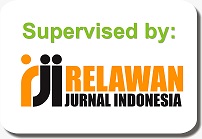POLITIK HUKUM PENGATURAN KEUANGAN PARTAI POLITIK DI INDONESIA
Abstract
This study aim to analyse the three problems related to political party financial matter. First, how does the statutory regulates the political party finance in Indonesia? Second, what issues must be regulated in statutory regarding political party finance. Third, what is the ideal model for political party finance regulation for Indonesia?
This research is a socio-legal research. In addition to examined the statutory regarding political party, the researcher also examined the legislation proccess transcript related to the statutory. In other words, the researcher sought to explore the background of the statutory provision formulation during its legislation process. Based on research variation according to F. Sugeng Istanto, this research may be categorised as literature research on the content of statutory law and applied law, qualitative and prescriptive. In this research, the statutory-approach used to understand the UU No. 2 Tahun 2011; historical-approach used to understand the legislation proccess transcript related to the statutory; comparative-approach used to understand the political parties financial regulations in Germany and the United States; while conceptual-approach used to understand the concept of popular sovereignty, representative democracy, freedom of assembly, political parties concept, the concept of political party accountability and transparency, the anatomy of political party law, and the politics of law concerning political party financial regulation. The data used in this research are secondary data such as statutory text, legislation proccess transcript, books, journals, articles, scripts from the internet, and dictionaries.
From the analysis, thre researcher concludes that: First, the political party financial regulation in Indonesia adopted a permissive model, in which, there are very high freedom for political parties, very loose demands of financial transparency and accountability, weak public supervision and obscure sanctions; Second, the law must regulate the mechanism of public funding for political party, obligations to reveal to source and amount of donations, standards for financial reports, obligation to submit financial statements periodically to supervisory agendies, obligation related the periodically financial audit by external professional auditors, donations cap, prohibitions of certain donations source, sanctions for violations. Third, the ideal political party finance regulation model for Indonesia is by combining the demands of transparency, demands of periodically financial audit by external professional auditors, ban on foreign source donations and non taxable entities source donations, reasonable restriction on nominal donation per person per year, enforcement of Election Commission and Election Supervisory Board through strong authorization to supervise and to impose severe administrative sanctions, the public funding given as a partial reimbursement for the previous year operating cost provided that the party has complied the financial transparency and accountability obligations.
Keywords
Full Text:
PDFReferences
Abdul Mukthie Fadjar, 2008. Partai Politik Dalam Perkembangan Sistem Ketatanegaraan Indonesia. Cetakan Pertama. Malang: In-TRANS Publising
Amal Ichlasul (editor). 1998. Teori-Teori Mutakhir Partai Politik. Yogyakarta: PT. Tiara Wacana.
C. F. G. Sunaryati Hartono. 1991. Politik Hukum, Menuju Satu Sistem Hukum Nasional. Bandung: Alumni.
Didik Supriyanto. 2012. Kebijakan Bantuan Keuangan Partai Politik: Review terhadap PP No. 5/2009 dalam Rangka Penyusunan Peraturan Pemerintah Baru Berdasar UU No. 2/2011, dalam “Dana Kampanye: Pengaturan Tanpa Makna”, Jurnal Perludem Volume 3 Mei.
Emmy Hafild. 2008. Laporan Studi: Standar Akuntansi Keuangan Khusus Partai Politik. Cetakan Kedua, Jakarta: Transparency International Indonesia dan IFES.
Garret, Elizabeth, 2002. “Working paper No. 8: Voting with Cues”, Center for Study of Law and Politics-USC Law School and California Institute of Technology, California,
John Locke, 1690, The Second Treatise of Civil Government, hlm. 350 sebagaimana dikutip dalam GregoryP.Magarian,“Regulating Political Parties Under a "Public Rights" First Amendment”, William and Mary Law Review, Volume 44, Issue 5, April, 2003,
Kenneth Janda, 2005. Political Parties and Democracy in Theoritical and Practical Pesrpectives-Adopting Party Law, National Democratic Institute for International Affairs, Washington
Moh. Mahfud MD. 2010. Membangun Politik Hukum, Menegakkan Konstitusi, Cetakan Pertama, Jakarta: PT. RajaGrafindo Persada.
Padmo Wahjono. 1986. Indonesia Negara Berdasakan atas Hukum, Ghalia Indonesia, Jakarta.
Ramlan Surbakti. 1999. Memahami Ilmu Politik, Jakarta: Grasindo.
Sidik Pramono. 2011. Pengendalian Keuangan Partai Politik, Jakarta: Kemitraan Bagi Pembaruan Tata Pemerintahan.
Satjipto Rahardjo. 1991. Ilmu Hukum, Cetakan Ketiga, Bandung: Citra Aditya Bakti.
Soedarto. 1983. Hukum Pidana dan Perkembangan Masyarakat Kajian Terhadap Hukum Pidana, Bandung: Sinar Baru.
Sidharta, Bernard Arief. 1999. Refleksi Tentang Struktur Ilmu Hukum. Mandar Maju, Bandung.
Tourine, Alain, 1997, West is Democracy?, West Press, Colorado Utrecth, E, 1983. Pengantar Dalam Hukum Indonesia, Pustaka Sinar Harapan, Jakarta.
Teuku Mohammad Radhie. 1973. “Pembaharuan dan Politik Hukum dalam Rangka Pembangunan Nasional”. artikel dalam Majalah Prisma Nomor 6 Tahun II Desember.
Undang Undang Dasar Negara Republik Indonesia
Undang-Undang Nomor 12 Tahun 2011 tentang Pembentukan Peraturan Perundang-undangan
DOI: https://doi.org/10.32528/faj.v18i2.6545
Refbacks
- There are currently no refbacks.
Copyright (c) 2021 Fairness and Justice: Jurnal Ilmiah Ilmu Hukum

This work is licensed under a Creative Commons Attribution 4.0 International License.
View My Stats





